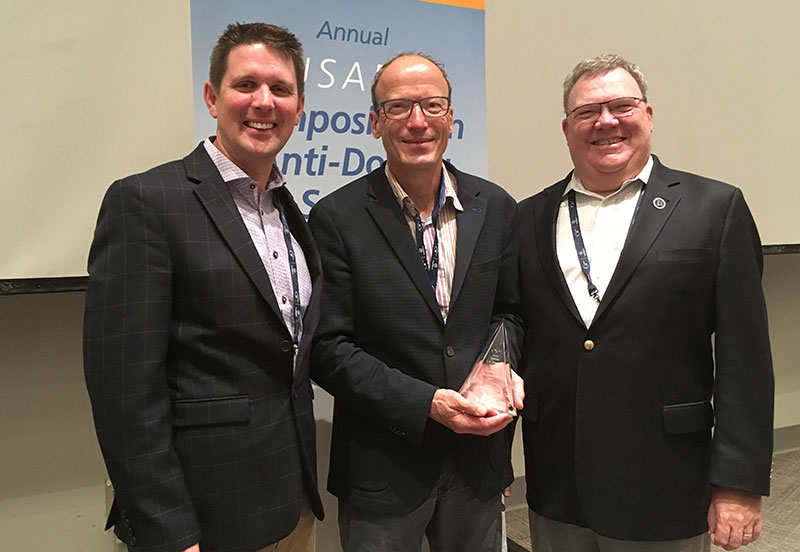Science
Research | Leadership | Innovation
Science plays a crucial role in the fight for clean competition, and USADA’s expert scientists are leaders in the anti-doping community globally. One of the most important areas where USADA’s science team has significant impact is research and scientific advancement in methods and practices that detect and deter the use of performance-enhancing drugs in sport. During the period from 2001-2009, USADA budgeted $2 million per year to support research in areas including anabolic steroids, growth hormone, oxygen transport-enhancing substances, genetic doping, and ethics, among others. Today, research efforts and resources are pooled and led by the Partnership for Clean Competition (PCC), a non-profit collaboration, which was founded in 2008 by the U.S. Anti-Doping Agency, the U.S. Olympic & Paralympic Committee, the National Football League, and Major League Baseball.
Annual USADA Symposium on Anti-Doping Science
The USADA Symposium on Anti-Doping Science is a global gathering, aimed at bringing together the best anti-doping experts from around the world, often including guests from as many as 30 countries, to inform and shape meaningful anti-doping research programs for the future.
The L.D. Bowers Award for Excellence in Anti-Doping Science
Science plays a crucial role in the fight for clean competition, furthering both the deterrence and detection of performance-enhancing drug use in sport. To recognize and award the achievements of scientists who have made an impact on anti-doping approaches and best practices, USADA launched the L.D. Bowers Award for Excellence in Anti-Doping Science in 2016.



